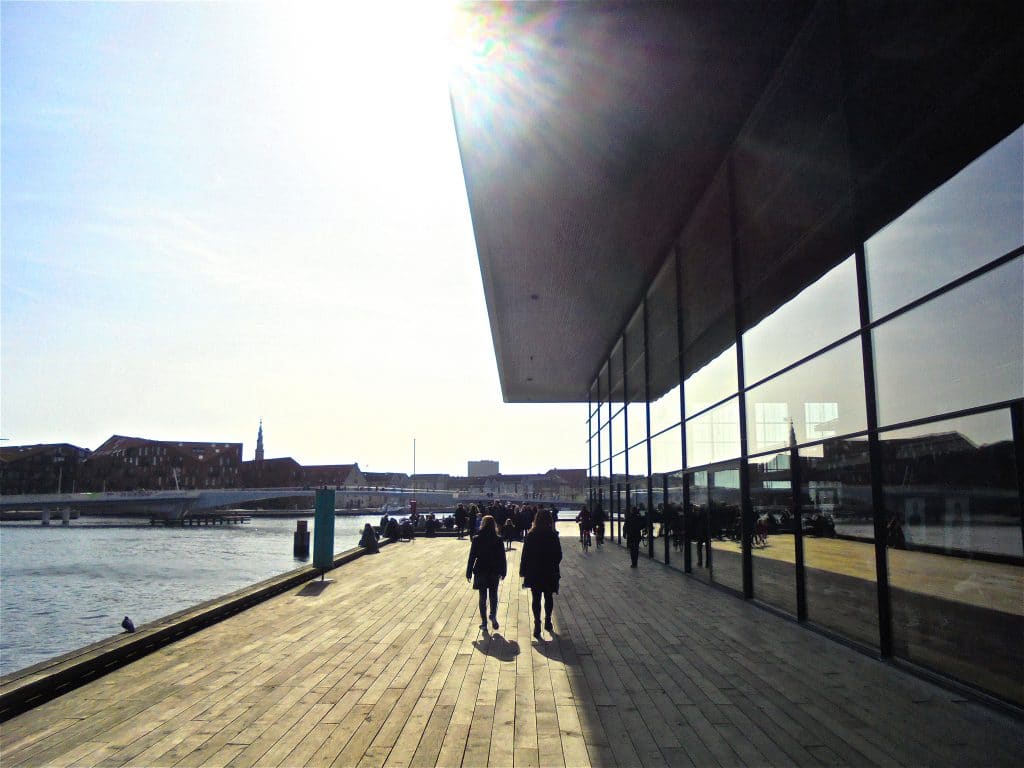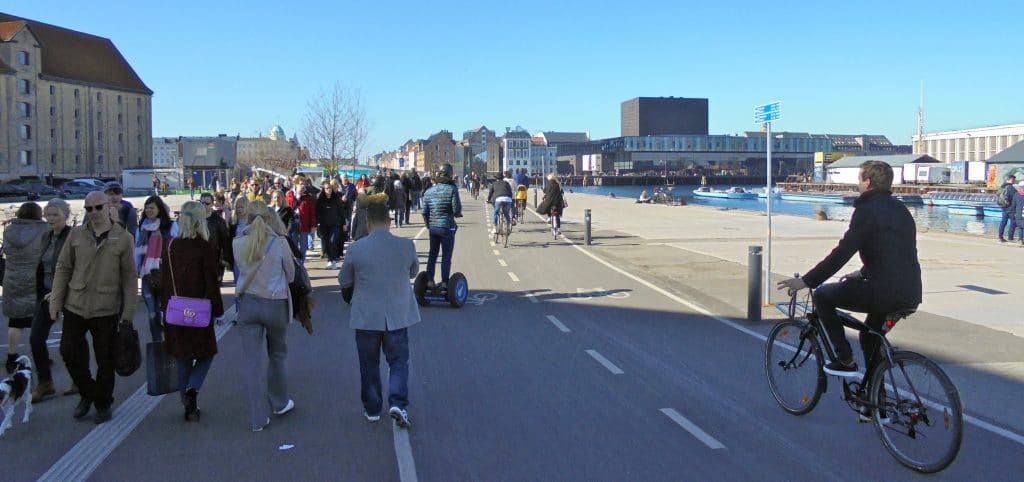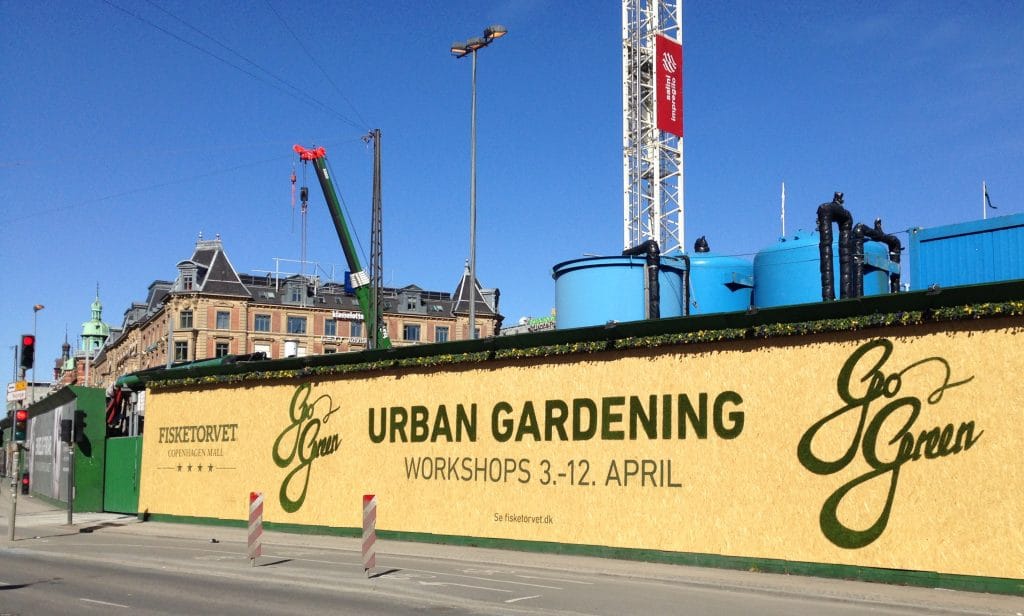As a planning student in the early 1980s, I found myself on an EU-funded ERASMUS exchange to Denmark’s second city, Aarhus. It was a formative time. Like many planning students, I had an idealistic desire to make places better but only a vague notion of how it might be done. Travelling round the country and visiting Copenhagen, Oslo and Gothenburg gave me a taste of what might be possible.
 Denmark and Scandinavia seemed streets ahead in many ways: outward looking, environmentally aware, socially mature, confident. I was fascinated by co-housing, cycle lanes, triple glazing, coalition and minority government, Christiania, high taxes and much higher wages. (Mind you, they only had one TV channel – we had four.) I lost count of the times someone incredulously asked me ‘Why do they do things that way in your country?’. I realised I had no answers.
Denmark and Scandinavia seemed streets ahead in many ways: outward looking, environmentally aware, socially mature, confident. I was fascinated by co-housing, cycle lanes, triple glazing, coalition and minority government, Christiania, high taxes and much higher wages. (Mind you, they only had one TV channel – we had four.) I lost count of the times someone incredulously asked me ‘Why do they do things that way in your country?’. I realised I had no answers.
Back home, our evocative politics lecturer Phil McGhee was weaving woes of Thatcherism, as it’s policies began to impact upon Scotland’s economy, culture and society (most of us believed there would always be such a thing). The UK was shifting sharply towards personal wealth, market sanctity and trickle-down economics. We were shutting down industry and engineering while the Danes laid the foundations for a world-leading renewable energy sector.
Like many, my fascination with Scandinavia has only grown.
Thirty-five years later, I’m back in Copenhagen, reflecting on different paths. Here, 56% of city residents cycle every day, with 41% commuting by bike. Of course, it’s easier to achieve that with 1000km of dedicated cycleways. The waterfront opens out to walking and cycling routes, play spaces, art, culture, sport, boats, paddle boards and cafes. There are people everywhere, enjoying the outdoors, the clear skies and the chilly air.
 The Jan Gehl-inspired public realm, designed for sustainable, healthy living is a key factor in Copenhagen’s deserved reputation as one of the world’s best cities. It’s a symbol of a nation’s personality: the UN’s World Happiness Report placed Denmark top of the league in 2013, 2014 and 2016. As I soak up the hygge in a bar, pondering upon these facts, the lights dim in support of Earth Hour.
The Jan Gehl-inspired public realm, designed for sustainable, healthy living is a key factor in Copenhagen’s deserved reputation as one of the world’s best cities. It’s a symbol of a nation’s personality: the UN’s World Happiness Report placed Denmark top of the league in 2013, 2014 and 2016. As I soak up the hygge in a bar, pondering upon these facts, the lights dim in support of Earth Hour.
Look, Denmark isn’t perfect. No place is perfect. My companion suggests everything’s maybe a bit too well ordered and organised here. Even Christiania now seems almost themed. And politics has turned here as it has elsewhere – laws to seize assets from refugees and delay family reunifications for three years reflect division.
But everything is relative. My personal odyssey began with the ERASMUS trip and it’s sad to imagine the next generation never having that opportunity – UK involvement in the scheme is under threat from Brexit, along with ease of travel to and from places like Copenhagen. Instead of building closer bonds and learning from our neighbours, the UK seems set for a hard farewell, irrespective of more positive views here in Scotland.
If recent Brexit posturing is anything to go by we may become ever more marginalised, striding the sovereign road towards tax haven status: a natural end-point to Thatcherism. Scotland’s former Chief Medical Officer Harry Burns has illustrated the lingering hangover of Thatcherism’s impacts on physical and mental health, wellbeing and social isolation. Is another equally damaging wave heading our way?
The 1980s put the working class in the spotlight. Brexit will shine its beam on the middle classes. The Financial Times reports that between 2007 and 2015, the UK was the only advanced economy in the world where wages fell despite expanding GDP. There’s more on the way. A low wage, low tax economy will not give us the public investment and social conditions that can drive a Scandinavian-style renaissance.
Why is Danish wellbeing so much higher than ours? A new book, ‘Dismembered: How the Attack on the State Harms Us All’ shows the Danish state provides more comfort, being in receipt of 50% of GDP, far exceeding the UK level of 38%, which continues to fall.
 Our paths continue to diverge. As Copenhagen racks up investment in its urban realm, we continue to shift towards ‘Ground Control’: pseudo-public space, often of poor quality, with restricted access, owned privately and designed largely to drive consumption. The market doesn’t do public investment unless it’s forced and even then, it typically does it badly.
Our paths continue to diverge. As Copenhagen racks up investment in its urban realm, we continue to shift towards ‘Ground Control’: pseudo-public space, often of poor quality, with restricted access, owned privately and designed largely to drive consumption. The market doesn’t do public investment unless it’s forced and even then, it typically does it badly.
As a malcontent student, I tended to paint gloomy pictures, just like this one. However, they usually contrasted negatives with positives, as I hope this blog has. The approaching zombie society isn’t inevitable: we only need to look around us to see more animated alternatives. But we do need to choose the right path – and choose it quickly.
